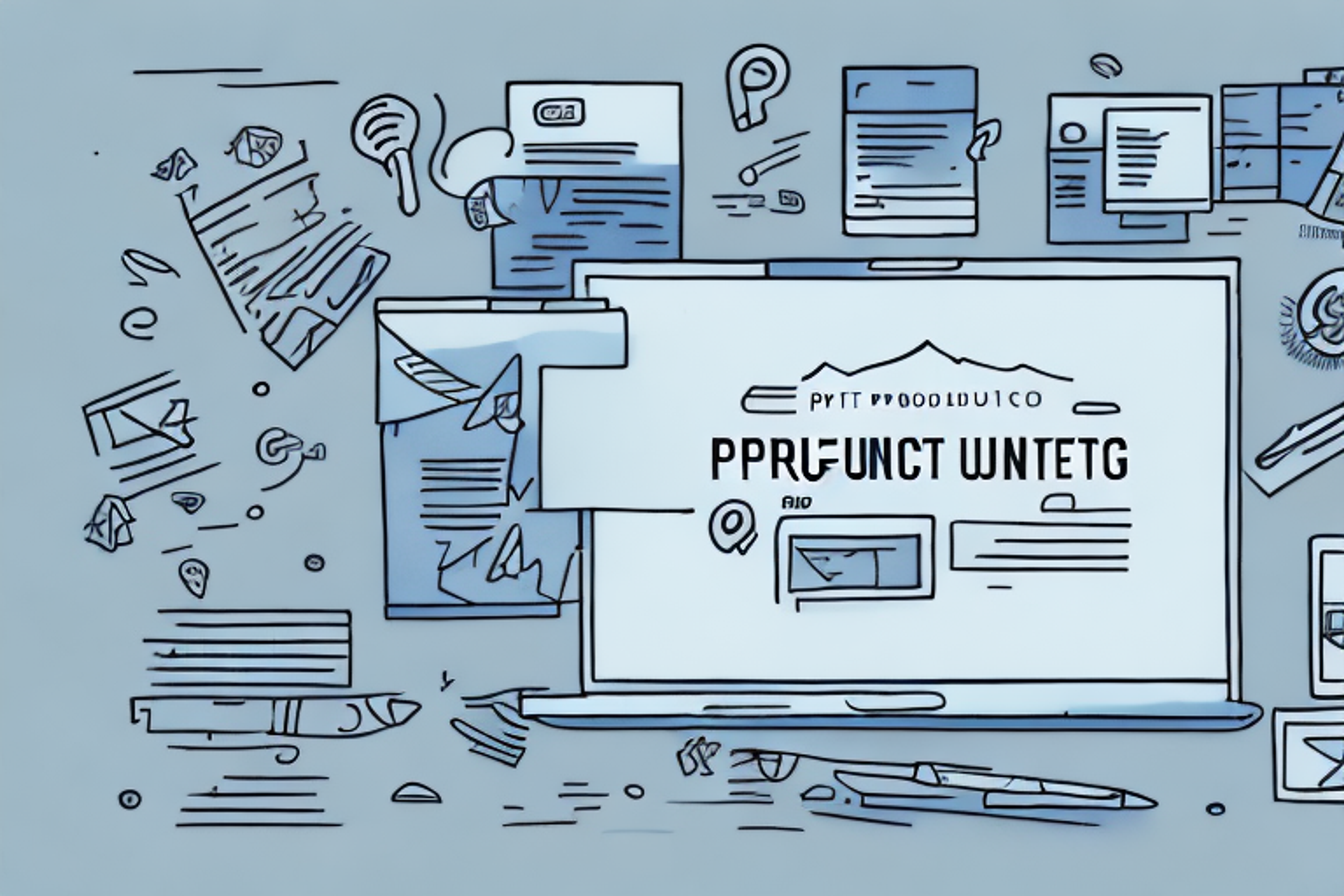Production Management Certification: Courses and Programs for Success
Discover the best courses and programs for obtaining a production management certification and achieving success in your career.
Posted May 15, 2023

Table of Contents
Have you been considering pursuing a production management certification? If so, you are making a wise decision. Earning a production management certification can provide you with competitive advantages in the job market and elevate your career to new heights. Let's explore why production management certification is worth pursuing and the different types of certification programs available.
Why Pursue a Production Management Certification?
Earning a certification in production management can open doors for you in the field of manufacturing and operations management. This certification can demonstrate to employers that you have a deep understanding of the production process, supply chain management, and quality control. By earning a certification, you can stand out as a qualified candidate in a competitive job market. Additionally, a certification in production management can help you develop leadership skills, improve collaboration and communication, and optimize your efficiency in managing your team.
Furthermore, a production management certification can also lead to higher earning potential. According to a survey conducted by the Association for Operations Management, individuals with a certification in production and inventory management earn an average of 12% more than those without a certification. This increase in salary can make a significant impact on your financial stability and future career growth.
The Benefits of Earning a Production Management Certification
The benefits of earning a production management certification are many. For one, certified production managers tend to earn more than non-certified peers. A certification is proof of your knowledge and skill, and employers are willing to pay more for that expertise. Additionally, certified professionals are more likely to advance in their careers and take on higher-level positions. According to the Bureau of Labor Statistics, employment of industrial production managers is projected to grow 5 percent from 2019 to 2029, which means that obtaining certification can be advantageous for your long-term career prospects.
Another benefit of earning a production management certification is the opportunity to network with other professionals in the field. Many certification programs offer networking events and online communities where you can connect with other certified production managers. This can lead to new job opportunities, collaborations, and the sharing of best practices. Additionally, being part of a professional network can provide you with access to the latest industry trends and developments, which can help you stay ahead of the curve and make informed decisions in your role as a production manager.
Different Types of Production Management Certifications Available
There are several different types of production management certifications available, depending on your field and industry. Some popular certifications include the Certified in Production and Inventory Management (CPIM) designation offered by the Association for Supply Chain Management (ASCM), the Certified Lean Six Sigma Green Belt (CLSSGB) offered by the International Association for Six Sigma Certification (IASSC), and the Manufacturing Skills Standards Council (MSSC) certifications, which are recognized by the National Association of Manufacturers. Each certification has specific requirements and focuses on different areas of production management, so it's essential to consider the certification that best fits your career goals.
The CPIM certification is designed for professionals who are involved in production and inventory management. It covers topics such as demand management, material requirements planning, and capacity planning. The CLSSGB certification, on the other hand, focuses on lean principles and Six Sigma methodologies to improve quality and reduce waste in production processes. Finally, the MSSC certifications are geared towards entry-level workers and cover topics such as safety, quality control, and maintenance.
Obtaining a production management certification can be a valuable investment in your career. It can demonstrate to employers that you have a deep understanding of production management principles and can help you stand out in a competitive job market. Additionally, many certifications require ongoing education and training, which can help you stay up-to-date with the latest industry trends and best practices.
A Comprehensive Guide to Production Management Certification Programs
Before beginning your certification program, it is crucial to have a comprehensive understanding of the certification process, the program requirements, and the curriculum. You may need to obtain specific experience and education requirements before applying, such as a certain number of years of experience in manufacturing, a certain level of education, or relevant coursework. Once you have met the prerequisites, you will enroll in a program and complete coursework, which typically covers topics such as production control, inventory management, quality control, and manufacturing planning and scheduling.
It is important to note that there are various types of production management certification programs available, each with its own unique focus and requirements. Some programs may be geared towards specific industries, such as automotive or aerospace manufacturing, while others may have a broader scope. It is important to research and choose a program that aligns with your career goals and interests.
Additionally, obtaining a production management certification can lead to various career opportunities and advancements. Graduates of these programs may pursue roles such as production manager, operations manager, or supply chain manager. These positions often come with higher salaries and increased responsibilities, making the certification program a worthwhile investment in your career.
Top Schools Offering Production Management Certification Courses
There are many schools that offer production management certification programs, so finding the right program for you might be a daunting task. Some of the top schools offering certification courses include MIT Sloan School of Management, Penn State's Smeal College of Business, and the University of Michigan's Ross School of Business. Other options include community colleges or online programs, which can be more affordable and flexible than traditional on-campus courses. Take the time to research different schools to find the one that best suits your needs and personal preferences.
Online vs In-Person Production Management Certification Programs: Which One Is Right for You?
When considering a production management certification program, you'll need to decide whether to undertake an online or in-person program. Both options have their benefits. Online programs are often more flexible and can be completed at your own pace. In-person programs, on the other hand, provide greater structure and opportunities for networking. Think about your learning style and existing commitments to determine which type of program is best for you.
How to Choose the Best Production Management Certification Program for Your Goals
Choosing the right production management certification program requires careful consideration of several factors, including course content, tuition costs, time commitment, and scheduling. Start by researching different programs and checking their accreditation. Determine if the program aligns with your career goals and if the curriculum covers your areas of interest. Consider also if the program provides you with the opportunity to finish the certification process in a timely manner and fits your budget.
What to Expect from a Typical Production Management Certification Course
In a typical production management certification course, you can expect to learn the fundamentals of production and operations management. You'll study concepts like production control, scheduling, safety, quality control, and lean manufacturing. You'll explore different management techniques, supply chain management, and inventory management. Some courses may also offer hands-on experience with production machinery or utilize software programs used in the field, such as enterprise resource planning (ERP) systems.
Tips for Succeeding in a Production Management Certification Program
Like any other certification program, succeeding in a production management certification course requires dedication and hard work. Here are some tips to help you succeed:
- Start by carefully looking at the required coursework, and organize a study schedule that works for you.
- Stay organized by breaking down the material into smaller chunks, and study each concept thoroughly before moving on to the next one.
- Take advantage of any hands-on exercises, case studies, or simulations to practice.
- Participate in group discussions, ask questions, and get feedback from your instructors and peers.
- Use online resources to supplement your learning, connect with fellow professionals, and seek additional support or advice when necessary.
Common Career Paths for Graduates of Production Management Certification Programs
Graduates of production management certification programs can pursue various careers in the manufacturing field, including management positions like plant manager, production supervisor, or materials manager. Additionally, production management certification can lead to opportunities in quality assurance or supply chain management. As automation and technology continue to shape the industry, production management certification can give you specialized skills to navigate new challenges.
The Future Outlook for Certified Production Managers
According to the Bureau of Labor Statistics (BLS), job growth for industrial production managers is expected to grow by 5% between 2019 and 2029. Additionally, the BLS notes that the average annual salary for industrial production managers is over $100,000 per year. With these projections out there, it's clear that earning a certification in production management can only increase your earning potential and your career advancement in the years to come.
Conclusion
Earning a production management certification can be a significant investment in your career, but it has numerous benefits in the long run. From higher salaries to impressive career opportunities, earning a certification can distinguish you as a highly-skilled professional in the field of manufacturing and operations management. With proper research and dedication, a production management certification can open many doors for you and help you reach your career goals.



















